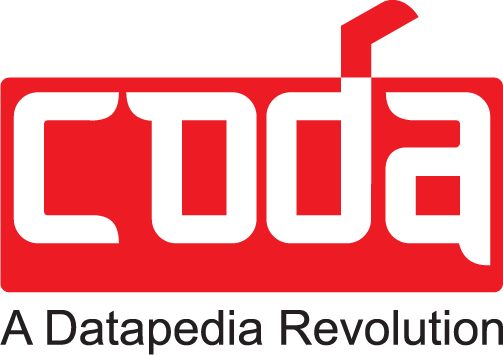Define Your Business Requirements:
- Clearly define your organization’s business requirements for MDM, including the scope, scale, and complexity of your data management needs.
- Identify the specific data domains that need to be managed, such as customer, product, or location data, and determine the level of data governance and data quality requirements.
- Consider your organization’s growth plans, future data management needs, and any specific industry or regulatory compliance requirements.
Data Integration Capabilities:
- Evaluate the data integration capabilities of the MDM solution, including its ability to integrate with various data sources and systems, such as databases, applications, APIs, and cloud platforms.
- Consider the ease of data ingestion, data transformation, and data synchronization capabilities of the MDM solution.
- Assess the support for real-time data integration, batch processing, and data streaming based on your organization’s data integration needs.

Data Quality Management Features:
- Data quality is crucial for maintaining accurate and reliable master data.
- Evaluate the data quality management features of the MDM solution, including data profiling, data cleansing, data enrichment, and data validation capabilities.
- Consider the ability to define and enforce data quality rules, data matching and deduplication, and data enrichment using external data sources or data services.
- Look for data quality monitoring and reporting features that provide visibility into the health and quality of your master data.
Assess Data Governance Capabilities:
- Data governance is essential for ensuring that master data is managed in a consistent, compliant, and controlled manner.
- Evaluate the data governance capabilities such as data modeling, data lineage, and data versioning.
- Consider the ability to define and enforce data governance policies, data stewardship roles and responsibilities, and data approval workflows.
- Look for features that provide visibility and control over data changes, data access, and data lineage to ensure data governance best practices are followed.
Ease of Use and User Experience:
- User adoption is critical for the success of an MDM solution.
- Evaluate the ease of User interface, navigation, and overall user experience.
- Consider the level of customization and configuration options available to tailor the MDM solution to your organization’s specific needs.
- Assess the availability of user training, documentation, and support to ensure that users can effectively utilize the solution.

Scalability and Performance:
- Scalability and performance are important considerations for an MDM solution, especially as your organization’s data volumes and data management needs grow over time.
- Evaluate the scalability and performance capabilities of the MDM solution, including its ability to handle large volumes of data, concurrent users, and complex data processing tasks.
- Consider features such as data caching, data partitioning, and data indexing that can enhance the scalability and performance of the MDM solution.
- Evaluate the hardware and infrastructure requirements and the ability to scale the solution horizontally or vertically based on your organization’s needs.
Data Security and Compliance:
- Data security and compliance are critical when managing master data as it often contains sensitive information.
- Evaluate the data security and compliance features such as data encryption, authentication, and authorization mechanisms.
- Consider the ability to define and enforce data access controls based on roles and permissions, data masking, data auditing, and data lineage to ensure data security and compliance requirements are met.
- Evaluate the MDM solution’s compliance with industry standards and regulations such as GDPR, CCPA, HIPAA, and other relevant data privacy and security regulations.
Vendor Support and Reputation:
- The support and reputation of the vendor are crucial factors to consider.
- Evaluate the vendor’s track record, experience, and reputation in the MDM market.
- Consider the level of customer support and service offered by the vendor, including response times, availability of support channels, and customer testimonials or references.
- Assess the vendor’s ability to provide ongoing updates, patches, and enhancements to the MDM solution, as well as their long-term commitment to the product’s development and support.
Optimize Total Cost of Ownership (TCO):
- Evaluating the total cost of ownership (TCO) of an MDM solution is essential to ensure that it aligns with your organization’s budget and financial goals.
- Assess the various costs associated with the MDM solution, including software licenses, implementation, and customization costs, hardware and infrastructure requirements, ongoing maintenance and support costs, and any hidden or unforeseen costs.
- Consider the potential return on investment (ROI) and business benefits the MDM solution can provide, such as improved data quality, increased operational efficiency, reduced data duplication, and enhanced decision-making.
- Evaluate the flexibility of pricing and licensing options offered by the vendor, including subscription-based models, cloud-based options, or perpetual licenses, to optimize the TCO of the MDM solution.
Consider Innovation and Future Vision:
- MDM is a rapidly evolving field, and it’s crucial to select an MDM solution that is innovative and aligns with your organization’s future vision.
- Evaluate the vendor’s commitment to innovation, research and development, and their roadmap for the future of MDM.

- Consider the vendor’s ability to adapt to changing market trends, emerging technologies, and evolving data management needs, such as big data, IoT, cloud computing, and artificial intelligence.
- Assess the vendor’s vision for the future of MDM and their ability to provide continuous updates and enhancements to the solution to meet your organization’s evolving data management requirements.
Involve Stakeholders in the Decision-making Process:
- Involving key stakeholders in the decision-making process is crucial to ensure that the selected MDM solution meets the needs of various departments and functions within your organization.
- Engage stakeholders such as IT, data governance teams, data stewards, business users, and senior management in the evaluation and selection process.
- Consider their input on the specific data management needs, requirements, and pain points they face in their day-to-day operations.
- Get feedback from stakeholders on the usability, functionality, and suitability of the MDM solution, and involve them in evaluating the vendor’s reputation, support, and future vision.
Final Thoughts:
Selecting the right MDM solution for your business is a crucial decision that requires careful consideration of your organization’s unique needs, challenges, and long-term goals.
Remember that implementing an MDM solution is not a one-time event, but an ongoing process that requires continuous monitoring, improvement, and adaptation to changing business needs. Regularly assess the performance and effectiveness of your selected MDM solution, and be willing to make adjustments as needed to ensure that it continues to meet your organization’s evolving data management needs.
Investing in the right MDM solution can yield significant benefits for your business, including improved data quality, enhanced data integration, streamlined operations, and better decision-making.
At CODA Technology Solutions Private Limited (CODASOL), we understand that effective data management is crucial to the success of your business. That’s why we offer a comprehensive range of enterprise MDM services designed to meet your specific needs and ensure you get the most out of your data.
With our advanced technology-driven solutions, you can be sure that your data is managed efficiently and effectively. Our services cover everything from Master Data Management and Project Management to Plant Maintenance and Inventory Optimization, giving you a complete end-to-end solution that helps you manage your present, rectify your past, and plan your future.
So if you’re looking for a partner you can rely on to help you get the most out of your data, look no further than CODASOL. With our expertise and dedication to customer service, you can be confident that you’re always one step ahead.


